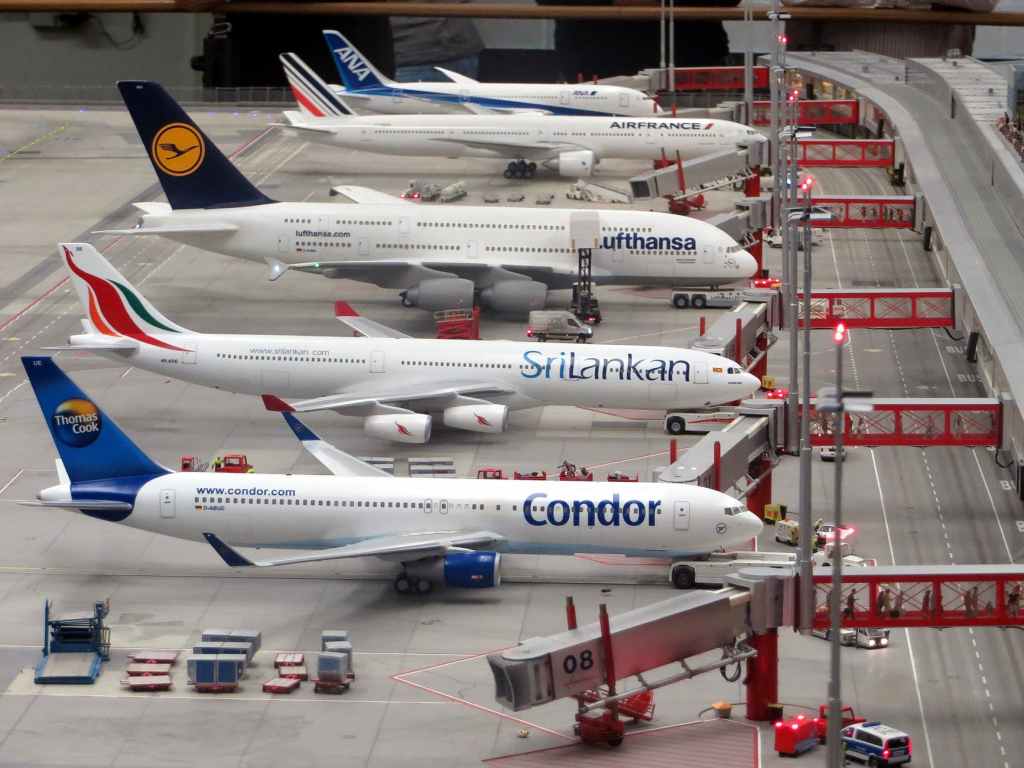By Vatsalya Pankaj and Likhita Agrawal, third-year students at MNLU, Nagpur
The COVID-19 outbreak has caused great economic predicament, with many financial institutions and companies on the verge of bankruptcy. With the backdrop of the nationwide lockdown, the Indian government has introduced an ordinance suspending provisions of the Insolvency and Bankruptcy Code (‘IBC‘) to protect the industries from the effect of the pandemic. The airline industry is among those worst hit due to the current situation. Although the ordinance seeks to protect the interest of companies, it may cause an unforeseen impact on the creditors.
The current condition can be demystified as a no output; still interest, sort of scenario in many cases. The companies have obligations towards their creditors and the prevalent recrudescence makes them unable to meet their financial requirements in terms of the value of money on the credit sanctioned. If this continues, then it could bring the business entity in a state where its liabilities exceed its assets. The same is perilously known as the concept of Insolvency.
Thus, to provide a cushioning effect for vulnerable industries, the President of India promulgated an ordinance adding Section 10A to the IBC. The section essentially suspends Sections 7, 8, 10 and 14 of the IBC for a period of at least six months (extendable up to a year) from 25 March 2020. Through this ordinance, the Government has provided for a blanket ban of any Corporate Insolvency Resolution Proceedings (‘CIRP’) against any company. It aims to provide some relief to the corporate debtors by preventing the creditors from initiating any form of resolution process against the company. This provides the company with some breathing space to get things back in order which were disturbed because of the pandemic.
The suspension of CIRP provides for a variety of consequences on the different sectors of the economy, in particular the airline industry. The researches shall be attempting to trace how the finances of the airline industry work and what would be the consequences of the suspension of IBC on this industry.
The Peculiarities of Airline Industry
The Aviation Industry is one of the worst affected industries due to the spread of COVID-19 as it has resulted in the grounding of flights both locally and internationally. The Ministry of Civil Aviation had suspended all flight operations on the 24th of March, 2020 to prevent the spread of the epidemic. The Aviation Sector has always been high risk- high return. However, even the most successful airlines are under the threat of bankruptcy. Kingfisher Airlines and Jet Airways serve as examples having gone insolvent, while Air India is struggling to survive. With ever-increasing operational costs coupled with rising fuel prices, there is evidence that operating a consistently profit-making airline is a tough business. Further, reference can be made to an IATA report (‘Report’) which estimated the losses that the airline industry has suffered globally, due to the COVID-19 pandemic which is expected to be around $84.3 billion in 2020.
The main assets of airlines are their aircrafts. However, airlines in India are modelled around sale and leaseback transactions. If we analyse the data, airlines in India are rarely ever owned by the airline operator, they are majorly leased from international companies such as Avolon (62), Aircastle (30), BOC Aviation (24) & BBAM (29).
Lease agreements in the aviation sector work with the principle of “come hell or high water” i.e. the lessee must pay the lessor the charges for the aircraft in all circumstances, without exceptions. It may be argued that in such cases, the defense of force majeure can be claimed to defer the payment of the lease. However as most of the lease agreements are modeled around Common Law, there is no direct assumption of force majeure. To not follow the contract, it must be proven in a court of law, that the situation precluded the performance of the contract. This implies that airlines need to approach a court of law, prove that the current situation provides substantial grounds to them to not follow the lease payment dates and then defer the payment. Thus, it would seem that airlines have no option but to pay the lessors for their aircrafts albeit they may be grounded.
It is an established principle of aviation law that if the lessee is in possession of the aircraft, the lessee holds the responsibility to pay for it along with the responsibility of maintaining it as per the manufacturing standards and other regulations that may have been set to preserve the airworthiness of the aircraft.[1] Thus, despite no income, the airline would have to pay the dues to the lessors. Additionally, they have to maintain the aircraft up to airworthy standards and incur other expenses to maintain their fleet and crew.
All of this comes in the backdrop of the fact that most of the airlines had a tough previous financial year with passenger demand decreasing and increasing prices. The pandemic has only worsened the problem. India’s carriers may have to make requests to their respective lessors for deferral of payments till they can make ends meet. However, that is entirely dependent on a host of factors including the airline’s creditworthiness, future business framework, past payment history with the lessor, present financial situation and the competency to pay deferred rentals in the future.
With the current situation in mind and estimations that air travel demands, would fall significantly in the months succeeding the lockdown airlines undoubtedly, would like to reduce their fleet size. Most lease agreements do provide for the option of invoking “Early Termination Option” or ETO. It means that the lessee will terminate the contract before the due date and return the aircraft to the lessor. However, considering the principles on which lease agreements are made, this option is usually coupled with a hefty fine on the airlines, thereby meaning, that it becomes economically non-viable for the lessee to do so.
With all the problems culminating into one, the major airlines in the world including those in India are on the verge of bankruptcy. There is the option of bailing out the airline industry. This would require providing economic support to the industry so that it can make ends meet in the short run. This can be done through an economic package which may include tax exemptions, and waiving off landing and parking charges at airports. The Government may also follow the example of the United States and directly infuse cash into the industry. Airline enthusiasts might argue that there is an urgent need to bail out the industry, but keeping in mind Air India’s struggles wherein the Government has already signed off crores in debt, pouring public funds into the already struggling industry would not be advisable or indeed viable.
The Ramifications of the Suspension of IBC
The airline industry suffers because of the pandemic and mounting losses makes the situation seems grim for the industry. Further, as most aircrafts are leased from foreign countries, the provisions of the Cape Town Convention govern the lease agreements. The aircrafts which are owned by foreign companies and leased in India, would be deemed to be “International Assets” and India’s international obligations would mandate the return of the aircraft if the lessor demands.[2] The return of aircrafts would render airlines with insufficient aircrafts to operate when air traffic rises again, limiting their chances of recovering losses. This would also lead to excess ground and flight crew and would eventually lead to layoffs in the company. There would be a domino effect and one thing would lead to another, thereby harming the airline industry as a whole.
In the given scenario restructuring of debts under IBC is required. The ordinance, pose a series of problems to the airline industry as the option of approaching the NCLT for default in payment of lease dues is no longer available.
Before the IBC came into force, most of resolution and liquidation proceedings were carried out through Sick Industrial Companies (Special Provisions) Act, 1985 and the Companies Act 1956 which were subsequently repealed.[3] Section 230 and 231 of the Companies Act, 2013 (‘Act‘) provides for the arrangements of the companies as an alternative to IBC. However, Section 230 and 231 of the Act does bind all the creditors of the debtor and hence does not serve the purpose.
The ordinance, however, precludes what would have been best for the airline industry by adding Section 10A to the IBC. It imposes a blanket ban on all Insolvency Proceedings and does not allow creditors to initiate CIRP. While this would have been positive for the national context, but as most lessors are international parties, they would have the right to retake the aircraft. Thus, the airlines would be forced into a situation where the lessors are likely to demand repossession of aircraft which has often been allowed by Indian Courts.[4] This is an unwanted scenario and harms the industry as a whole and it would lead to unintended consequences as discussed above. It is up to the industry to wither the storm and get through this crisis.
[1] Bunker D H, International Aircraft Financing, Volume 2: Specific Documents (1st edn, IATA 2005) 123.
[2] Matthias Reuleaux & Morten L. Jakobsen, ‘The De-registration of Aircraft as a Default Remedy in Aircraft Leasing and Financing Transactions’, (2015) 40(6) Air & Space L 377.
[3] Nithya Narayanan, ‘Aircraft Repossession in India: Turbulence ahead, Buckle up’ (2013) 38 Annals Air & Space L 445.
[4] Awas 39423 Ireland Ltd. v. Directorate General of Civil Aviation, 2015 SCC OnLine Del 8177; Corporate Aircraft Funding Co. LLC v. Union of India, 2013 SCC OnLine Del 1085.


Leave a comment